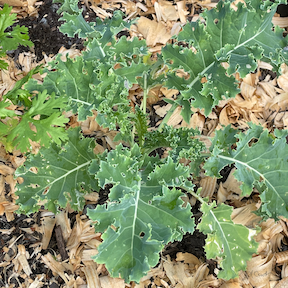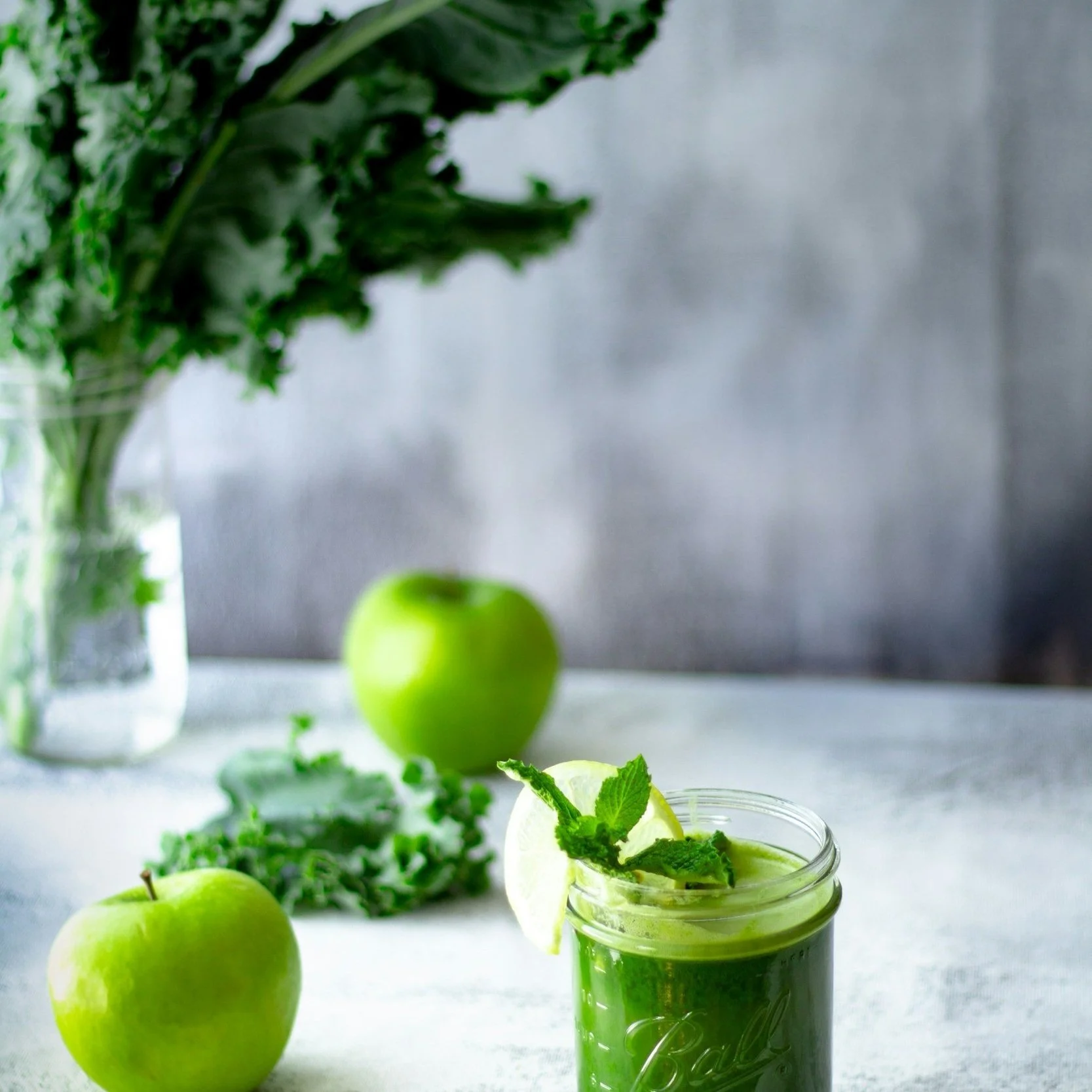SNAP-Ed in Action - Experimenting with Kale
Contributed by: Christine Dentremont, Maine SNAP-Ed Nutrition Educator
Kale, growing in a mix of soil and wood shavings.
Once a week throughout the summer, Maine SNAP Educator Christine Dentremont shares recipes and food samples with patrons at Loaves and Fishes Food Pantry in Ellsworth.
Each week features seasonal produce donated to the pantry from local farms, community gardens, and through the Downeast Gleaning Initiative. Recently, kale was the featured vegetable.
Kale is a leafy vegetable known for its high nutrient content. It's a member of the cruciferous vegetable family, which includes broccoli, Brussels sprouts, cauliflower, and cabbage. Kale comes in a variety of different colors and leaf textures.
To prepare for a recipe, soak the kale in a bowl of cold water and rinse it clean. Remove the stems or ribs by hand or by using a cutting board and knife. If texture is a concern when eating kale, finely chop it. One suggested recipe to overcome its chewy texture is Kale Dip.
A simple green smoothie can mellow any bitter qualities of this green. Adding fruits such as pineapple, grapes, apples, and/or bananas naturally sweetens this drink. Often described as a nutritional powerhouse, kale contains vitamins A, C, and K, supports vision, a healthy immune system, and can aid in healing. It is worth exploring different ways to prepare it.
The Maine SNAP-Ed program supports healthier communities by helping people learn to shop for and prepare nutritious meals on a limited budget. Maine SNAP-Ed is part of a national USDA initiative that aims to improve food security, increase access to healthy foods, and encourage lifelong healthy eating habits. The program offers free, evidence-based nutrition education and cooking classes to eligible Mainers in community settings like schools, food pantries, and housing communities.
Whether it’s trying a new vegetable, experimenting with a different fruit and veggie combos, or learning a new skill like using a vegetable peeler, SNAP-Ed helps make healthy eating fun, approachable, and achievable!
About Maine SNAP-Ed
Maine SNAP-Ed is a program designed to help eligible Maine families shop, cook, and eat healthy foods on a budget. Funded by the USDA’s Supplemental Nutrition Assistance Program (SNAP), the program offers hands-on nutrition education through classes in schools, community centers, healthcare settings, and food pantries across the state.
Maine SNAP-Ed works toward these key goals:
Improving access to nutritious food—especially fruits and vegetables—by partnering with local producers and community programs like FarmDrop.
Helping people develop lifelong healthy eating habits, with an emphasis on simple, affordable meals that are easy to prepare.
Reducing the risk of chronic disease through nutrition education and lifestyle support.
These goals align with the federal SNAP-Ed mission to empower individuals and families to make healthier food and lifestyle choices, ultimately contributing to stronger, healthier communities.
By highlighting local ingredients and encouraging creativity in the kitchen, programs like these support both individual health and community wellbeing. Whether you’re a beginner cook or looking for fresh inspiration, SNAP-Ed is here to help you build confidence, learn new skills, and enjoy the benefits of healthy eating—one delicious bite at a time.
Healthy Acadia’s Maine SNAP-Ed Nutrition Educators offer year-round cooking and nutrition classes in partnership with schools and organizations throughout Hancock and Washington counties. To learn more or schedule a class, contact Shannon (shannon.cherry@healthyacadia.org) or Andrea (andrea.coffin@healthyacadia.org) in Washington County, or Amy (amy.russell@healthyacadia.org) or Christine (christine.dentremont@healthyacadia.org) in Hancock County.


